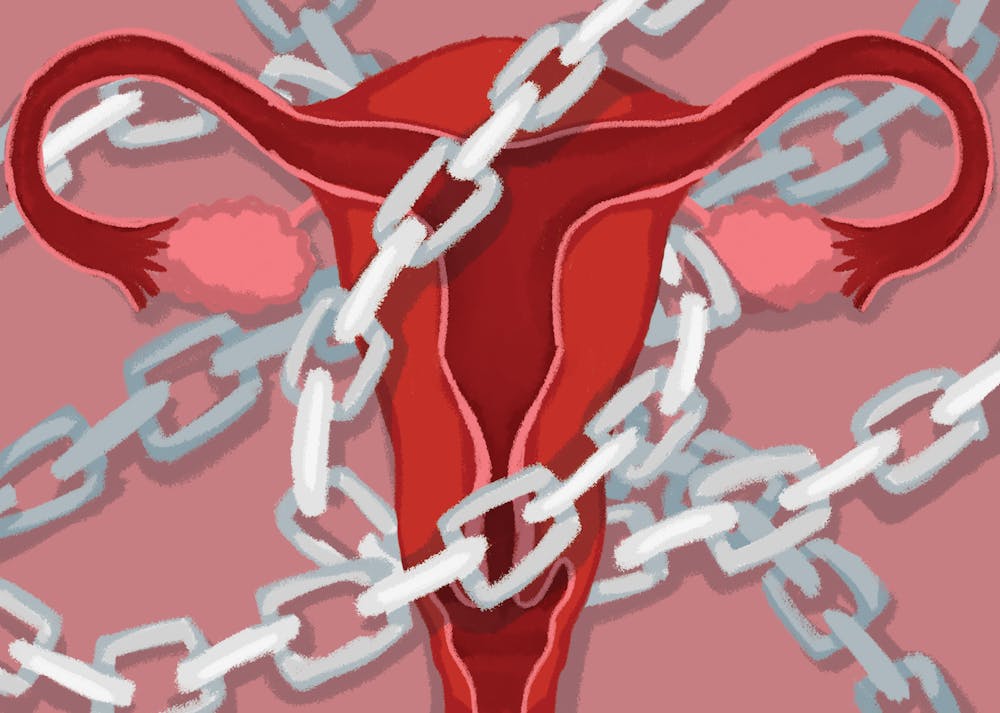In late April, an anti-abortion bill was signed into Arizona law by Gov. Doug Ducey. This bill, Senate Bill 1457, makes it illegal for doctors to perform abortions on women due to genetic abnormalities.
The bill would make it illegal to perform an abortion due to the fetus having conditions such as cystic fibrosis and Down syndrome. Abortions of this nature will only be legal if the mother’s life is at risk. Of course, whether or not the mother's life will be at risk financially or psychologically is not considered.
Doctors and attorneys warned Ducey this action would be unconstitutional and would go against standard medical practices, but he ignored the advice and signed it anyway.
For those who would argue that the mother could put the child up for adoption, there are already more than 400,000 children in foster care in the U.S. Many of these children face abuse or neglect, and considering the fact that people with disabilities report abuse more frequently, the future is not looking so bright for any child with a disability who was born against the mother's wishes and placed into foster care.
The U.S. Supreme Court announced in May its decision to hear a case that could potentially reverse the 1973 decision on Roe v. Wade, which granted the constitutional right to abortions across the nation. With the court's new 6-3 conservative majority, this poses another threat to the right to safe and legal abortions.
"When you ban abortion, you are banning safe and legal abortion. Illegal and unsafe abortions are still going to take place," said Mary Rothschild, a retired professor in Women and Gender Studies at ASU. "Wealthy women are always going to have access to abortion due to their connections. Low-income women are the ones being put at risk."
Low-income women are less able to take time off work and travel long distances to receive an abortion. This issue is being exacerbated by abortion restrictions, as fewer women will have access to them.
With less access to abortion, women are more likely to drop out of college due to a lack of time and money. A 2017 report by the Institute for Women's Policy Research showed that single mothers are less likely to finish college when compared to their peers. This would be taking steps back, bringing us further from gender equality in education and in the workplace.
"Many college students are sexually active, and these new laws will affect them," Rothschild said. "These kids, oftentimes, aren't consistently using birth control, and even if they are, no form of birth control is 100% effective."
She suggested students use a reliable form of birth control to reduce the likelihood of finding themselves in a predicament where they are unable to have an abortion. ASU has a Sexual Wellness Center and provides free condoms at health centers on all four campuses.
Rothschild said staying politically active and contacting local and state representatives are essential to make your voice heard. Voting, protesting and petitioning are very powerful tools. It may also affect your future in these types of situations. It is important that, in the future, Arizonans and Americans elect officials who will protect abortion rights and reproductive health care for all who need it.
ASU students and officials need to take a stance against this bill. President Michael Crow needs to put his students first. Student groups, including Planned Parenthood Generation Action at ASU and Young Democrats at ASU, are already condemning Crow for his silence.
This law and future threats are going to affect the student body, especially women and low-income students who cannot afford to raise a child.
Reach the columnist at htenore@asu.edu or follow @haleyyhmt on Twitter.
Editor's note: The opinions presented in this column are the author's and do not imply any endorsement from The State Press or its editors.
Want to join the conversation? Send an email to opiniondesk.statepress@gmail.com. Keep letters under 500 words and be sure to include your university affiliation. Anonymity will not be granted.
Like The State Press on Facebook and follow @statepress on Twitter.
Continue supporting student journalism and donate to The State Press today.

Haley Tenore is the editor of the State Press Opinion Desk. Tenore is also a digital reporter for Cronkite News and a co-president of the Accessibility Coalition. This is her fourth semester on the opinion desk and second semester as editor.




